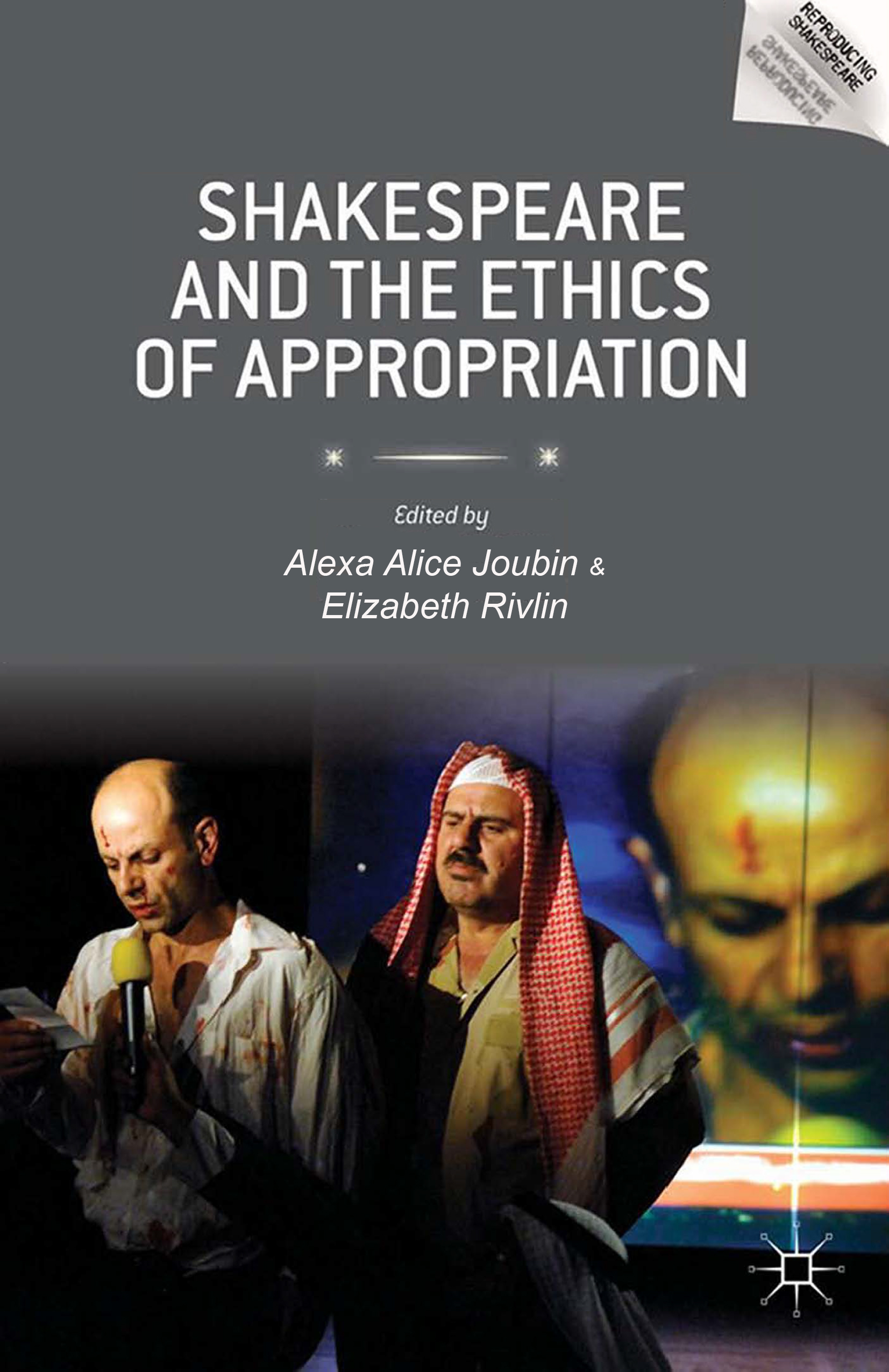Shakespeare and the Ethics of Appropriation
Palgrave Macmillan, 2014
At a time when Shakespeare is becoming increasingly globalized and diversified it is urgent more than ever to ask how this appropriated Shakespeare constructs ethical value across cultural and other fault lines. Shakespeare and the Ethics of Appropriation is the first book to address the intersection of ethics, aesthetics, authority, and authenticity in a global context.
This book is organized around the three words in our title: Shakespeare, ethics, and appropriation. The first refers to a biographically known person and his works, but also, and especially important for our purposes, to a signifier with rich and unstable connotations. The second term, ethics focus on how human beings should act and treat one another and, in particular, what constitutes a good action. In our contemporary context, ethics are often interpreted specifically in terms of a responsibility to cultural otherness. The third term, “appropriation,” introduces difficult questions about the relationship between Shakespeare and ethics. With its connotations of aggressive seizure and forced possession, “appropriation” might suggest that Shakespeare is a signifier that can be seized and deployed—against Shakespeare’s will, as it were.
Table of Contents
Introduction: Shakespeare and the Ethics of Appropriation by Alexa Alice Joubin and Elizabeth Rivlin
Chapter 1 Shakespearean Rhizomatics: Adaptation, Ethics, Value by Douglas Lanier
Chapter 2. Recognizing Shakespeare, Rethinking Fidelity: A Rhetoric and Ethics of Appropriation by Christy Desmet
Chapter 3. Ethics and the Undead: Reading Shakespearean (Mis)appropriation in Francis Ford Coppola’s Dracula by Adrian Streete
Chapter 4. Adaptation Revoked: Knowledge, Ethics, and Trauma in Jane Smiley’s A Thousand Acres by Elizabeth Rivlin
Chapter 5. Double Jeopardy: Shakespeare and Prison Theater by Courtney Lehmann
Chapter 6. Theatre Director as Unelected Representative: Sulayman Al-Bassam’s Arab Shakespeare Trilogy by Margaret Litvin
Chapter 7. A “Whirl of Aesthetic Terminology”: Swinburne, Shakespeare, and Ethical Criticism by Robert Sawyer
Chapter 8. “Raw-Savage” Othello: The First-Staged Japanese Adaptation of Othello (1903) and Japanese Colonialism by Yukari Yoshihara
Chapter 9. The Bard in Bollywood: The Fraternal Nation and Shakespearean Adaptation in Hindi Cinema by Gitanjali Shahani and Brinda Charry
Chapter 10. Multilingual Ethics in Henry V and Henry VIII by Ema Vyroubalová
Chapter 11. In Other Words: Global Shakespearean Transformations by Sheila T. Cavanagh
Afterword: “State of Exception”: Forgetting Hamlet by Thomas Cartelli
